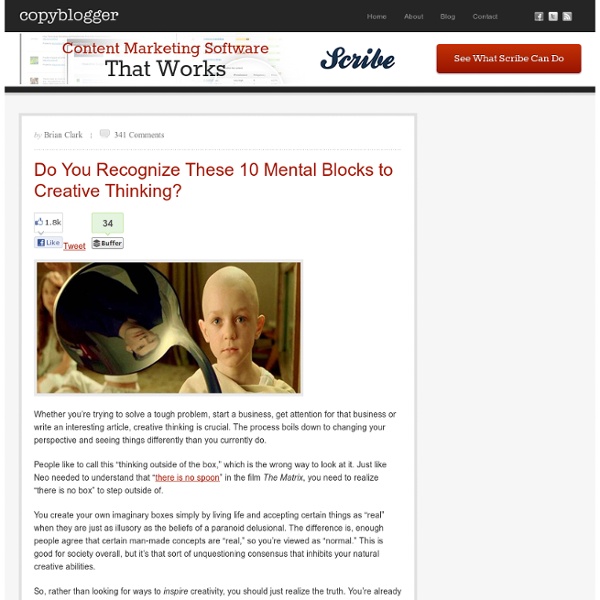



31 Ways to Find Inspiration for Your Writing How to find inspiration By Leo Babauta You can’t wait for inspiration. You have to go after it with a club. - Jack London No matter how much you love writing, there will always be days when you need inspiration from one muse or another. In fact, I would argue that inspiration is not just a desirable thing, it’s an integral part of the writing process. Every writer needs to find inspiration in order to produce inspired writing. I’ve compiled a list of some of my favorite ways of finding inspiration — some of them obvious, some of them less so. Blogs. “For my part I know nothing with any certainty, but the sight of the stars makes me dream.” - Vincent van Gogh If you liked this article, please share it by clicking on the share bar below. Photo courtesy of Seedling-Chaos The (nearly) Ultimate Guide to Better Writing Fill out the form below and get your copy immediately!
Eight Simple Tips for Editing Your Own Work Editing her own work One key factor that separates mediocre writers from good ones (and even good from great) is the quality of their editing. If you’re working for a big magazine or publishing house, you’ll have an editor who goes through your work, checks for any clumsy or ambiguous phrasing, and fixes any typos – but if you’re working on your first novel, or publishing posts to a blog, you’re almost certainly going to be on your own. It’s hard to edit your own work. You might end up skipping editing altogether because you hate it – or you might spend hours trying to get a piece right. #1: Don’t Edit While You’re Writing You’ve probably heard this one time and time again: don’t stop to edit while you’re writing. It’s fine to pause and correct a typo, or restart a sentence, while you’re creating the first draft – but don’t keep going back to delete whole sentences or paragraphs. #2: Put Your Work Aside for a Few Days By doing this, you make it easier to see your work afresh. #8: Let it Go
7 steps to creativity - how to have ideas A guest post by Simon Townley of WriteMindset As a writer, having ideas is one of the most important parts of your craft. But often it seems like one of the most difficult and challenging parts of the whole process. How do you keep ideas flowing? Some people like to wait for inspiration to strike. Luckily, there is a formula for producing ideas on a consistent basis. But if you need to produce strong and creative ideas regularly as part of your writing career, then it pays to know the formula, and how to use it. First of all, what is an idea? “An idea is nothing more nor less than a new combination of old elements.” So how do you combine old elements into new? “The capacity to bring old elements into new combinations depends largely on the ability to see relationships.” Young says the ability to see relationships between facts is the most important factor in coming up with ideas. How do you cultivate it? There is also a formula, however, a five step plan which Young outlined in his book.
Write Mindset — Writing tips | writing tools | writing ideas Writing Prompts Battling Writer's Block Writer’s Block ia a subject that we have discussed many times on this site in the past. It can be a frustrating and often overwhelming condition that writer‘s of all levels face at one time or another, no matter their style or expertise. What you probably don’t know is that writer’s block comes in various forms and each requires a different approach in order to overcome the obstruction and take back your creativity. The Different Forms of Writer’s Block (and How to Tackle Them): Lack of ideas This is the most common form of Writer’s Block and consists of literally staring at a blank page. There is good news for those that are suffering from this type of Writer’s Block, this is one of those times when ‘doing a writing exercise’ may actually work. An abundance of ideas, but a lack of discipline Another form of Writer’s Block is the challenge of having a ton of ideas but the lack of discipline to follow through with any of them. The fictitious brick wall The bold beginning without an end
WRITER'S TOOLBOX: 35 Best Tools for Writing Online